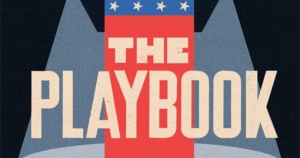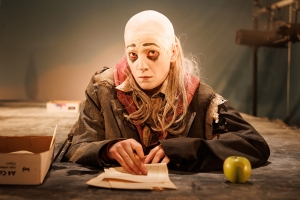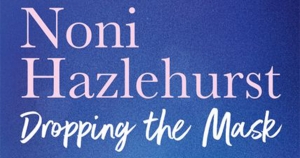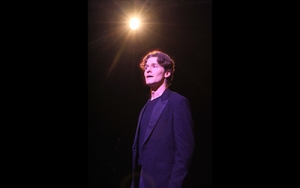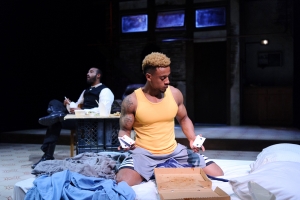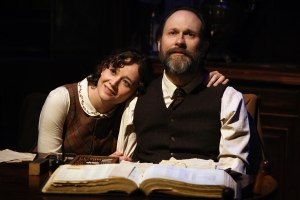Theatre
Paul Giles reviews ‘The Playbook: A story of theatre, democracy and the making of a culture war’ by James Shapiro
James Shapiro, a professor of English at Columbia University in New York, starts his new book with an epigraph listing two dictionary definitions of ‘playbook’: ‘[a] book containing the scripts of dramatic plays’, but also a ‘set of tactics frequently employed by one engaged in a competitive activity’. The Playbook turns on bringing these two definitions together. It argues that the Federal Theatre Project that developed in the United States between 1935 and 1939, as part of Franklin D. Roosevelt’s New Deal program, was effectively scuppered by the political machinations of ambitious Texas congressman Martin Dies. In 1938, the wily Dies succeeded in setting up the House Un-American Activities Committee (HUAC), with himself at its head. HUAC became notorious during the Cold War, under the direction of Joseph McCarthy, for its persecution of political dissenters. Shapiro’s thesis is that its nefarious influence began earlier, with the democratic principles he regards as inherent in theatre being peremptorily shut down by Dies’s political opportunism. Shapiro presents this conflict as a forerunner of more recent American culture wars driven by Pat Buchanan in the early 1990s through to Donald Trump in the present day.
... (read more)Zinnie Harris’s adaptation of Eugène Ionesco’s Rhinoceros, in this Spinning Plates production at fortyfivedownstairs, opens on a sombre wasteland setting, bathed in eerie yellow light. In a sudden blaze of colour, a raucous rabble of ordinary characters, rendered extraordinary by Dann Barber’s bold and anarchic costumes, invades the stage. The energy is starkly at odds with Jacob Battista and Dann Barber’s superbly contained and claustrophobic staging. From this heightened theatrical world – part pantomime, part circus – we brace for a wild ride.
... (read more)Diane Stubbings reviews ‘Dropping the Mask’ by Noni Hazlehurst
In 1983, actor Noni Hazlehurst was invited to London by Robyn Archer to be part of Archer’s new cabaret Cut and Thrust. Hazlehurst, less than a decade out of acting school and having just been fêted in Cannes for her performance of Nora in the film adaptation of Helen Garner’s Monkey Grip (1982), was ‘thrilled to bits’.
... (read more)Watching the denouement of Melbourne Shakespeare Company’s Hamlet, I was reminded of David Edgar’s 1980 stage adaptation of Charles Dickens’s The Life and Adventures of Nicholas Nickleby. Ensconced within the travelling theatrical company of Mr Vincent Crummles, Nicholas and his hapless companion Smike are cast in a production of Romeo and Juliet, Smike as the apothecary and Nicholas (of course) as Romeo.
... (read more)In The Forever Wars: America’s unending conflict with itself – a searing account of the ways in which the seeds of Trumpism and the MAGA movement reach back to the first throes of American nationhood (reviewed for ABR by Timothy J. Lynch) – journalist Nick Bryant characterises the narrative by which America defines itself as ‘a story of unrivalled national success, shared values, common purpose and continual progress’. The American story was, and is, a ‘blurring of history and folklore … [that] didn’t ask too many troubling questions’; The United States was, and is, a nation that ‘lives and contests its history’ with an unrivalled level of ‘passion and ferocity’.
... (read more)Straddling broad comedy and genuine pathos, Uncle Vanya, first produced in 1899, is a very tricky play indeed. The main characters are mostly puffed up with delusion and fuelled by romantic fantasy. They use mordant self-deprecation alongside flights of fancy to express their dissatisfaction with their lot. The play encourages the audience to laugh at the evident gap between these characters’ vaulting sense of how special their lives ought to be relative to their actual lives of middling privilege, conducted in middling places.
... (read more)Cameron Lukey is an Australian producer whose credits include acclaimed productions of 33 Variations at Melbourne’s Comedy Theatre in 2019 (starring Ellen Burstyn) and Angels in America at fortyfivedownstairs in 2017. He began his career as an opera singer and joined the team at fortyfivedownstairs in 2016. He was appointed Artistic Director of the theatre in 2023.
... (read more)Carol Middleton reviews ‘Shakespeare: The man who pays the rent’ by Judi Dench with Brendan O’Hea
In 1957, Michael Benthall, a director at the Old Vic, took a chance on a young woman straight out of drama school, casting her as Ophelia in a production of Hamlet starring John Neville and Coral Browne. I was lucky enough to be in the audience with my mother when Judi Dench, a velvet-voiced cherub in virginal white, made her début. An infinite variety of stage and film performances have gone by since then, but none has erased the memory of her stage presence that night.
... (read more)Paul Kildea reviews 'Masquerade: The lives of Noël Coward' by Oliver Soden
You could hardly ask for a better tour guide through the artistic travails and triumphs of the twentieth century. Born as the previous century was closing its shutters, Noël Coward dominated the London stage in the interwar years, butted heads with the Angry Young Men in the 1950s, before wrenching victory from the jaws of disfavour in his final years in a series of stunning revivals.
... (read more)Michael Shmith reviews 'I Will Be Cleopatra: An actress’s journey' by Zoë Caldwell
'I knew I was bright, but not special’, writes Zoë Caldwell early on in her pithy, telling memoir. Still earlier (indeed, in the first paragraph), she says that she knew, even from an early age, she was destined to perform: ‘ … to stand in front of people, keeping them awake and in their seats, by telling other people’s stories and using other people’s words. I knew this because it was the only thing I could do.’ There is a bit of self-deprecation in these words that is at loggerheads with what we have come to expect from actors’ memoirs, which are, more often than not, scribbled sentences rather than thoughtful paragraphs, and which tell us more about vanity, greed, self-indulgence, and the patience of the haunted ghost-writer than they do about the actor as a professional or a person. Actually, such books are like sets on some early television shows: bricks-and-mortar, but really canvas and plaster with wooden backing, which wobble every time somebody walks past. What they are not is true autobiography.
... (read more)
